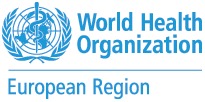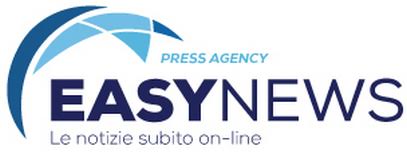
Virtual launch of The State of the Midwifery Workforce in Eastern Europe and Central Asia
WHEN: 5 May 2023
11:00 – 12:30 Copenhagen time/CEST
Zoom link: https://unfpa.zoom.us/j/84320325765?pwd=cHRtTDdvS0lvaTFXcXNGR1V0YVFDQT09
Meeting ID: 843 2032 5765
Passcode: 82905407
On 5 May (Friday), on the occasion of the International Day of the Midwife 2023, the WHO Regional Office for Europe and the UNFPA Regional Office for Eastern Europe and Central Asia will host a virtual launch event to discuss the findings of The State of the Midwifery Workforce in Eastern Europe and Central Asia report. The report analyses midwifery data and profiles of 17 countries and territories in the region, highlighting specific challenges, gaps, and bottlenecks that need to be addressed.
The COVID-19 pandemic has impacted healthcare services worldwide, with frontline health workers facing unprecedented challenges. They have had to balance the need to care for their patients with the need to prevent the spread of the virus. They have had to adapt to new protocols and guidelines and adopt new technologies and techniques to minimize in-person contact while still providing high-quality care.
Among these remarkable health workers are midwives. Despite the tremendous challenges, midwives continued to provide essential care to pregnant women, mothers, and newborns during the pandemic. Their unwavering commitment and adaptability have been essential in supporting maternal and newborn health during these difficult times.
The report shows that midwifery is a vital solution to the challenges of providing high-quality maternal and newborn care for all women and newborn infants in all countries. The report shows that midwifery can avert 2/3 of maternal and newborn deaths.
It also highlights the many benefits of investing in midwifery education, including improved primary health care, quality of care and rapid and sustained reduction in maternal and newborn mortality. When midwives are properly educated, regulated and integrated within a multidisciplinary team and a functioning referral system, they can meet approximately 90% of the need for essential sexual, reproductive, maternal, newborn and adolescent health interventions across the life course.
The report finds that there are 137,000 midwives in Eastern Europe and Central Asia, or about 5.5 midwives per 10,000 people, which is higher than the global average of 4.4. While these numbers are encouraging, WHO/Europe's regional report on the health and care workforce in Europe, Time To Act, recently found that midwifery graduates have decreased by 30% in some countries of the WHO European Region. With an ageing workforce, investments and strategies to retain and recruit more midwives into the profession are of vital importance.
The State of the Midwifery Workforce in Eastern Europe and Central Asia report is an important reminder of midwives' vital role in maternal and newborn health and the urgent need to invest in their education, regulation, and integration within health systems.
The launch event will feature WHO/Europe’s Regional Director, Dr. Hans Kluge and UNFPA’s Regional Director, Ms. Florence Bauer, followed by key highlights of the report and a panel discussion with country experiences from Norway, Sweden, and Kyrgyzstan. WHO/Europe and UNFPA will also present a joint statement calling for the advancement of midwifery.
For further information please contact Vini Vaid: vaida@who.int
Agenda:
| Time [CEST] | Activity |
| 11:00 – 11:15 | Opening remarks Ms. Florence Bauer, Director of the Regional Office for Eastern Europe and Central Asia Dr. Hans Kluge, Director of the WHO Regional Office for Europe |
| 11:15 – 11:30 | Key highlights of the EECA Midwifery workforce report and recommendations Dr. Andrea Nove, Novametrics Q&A |
| 11:30 – 12:15 | Panel discussion: country experiences Norway Sweden Kyrgyzstan Q&A and discussion |
| 12:15 – 12:25 | Joint statement of partners to advance midwifery work in the region |
| 12:25 – 12:30 | Conclusions WHO/Europe UNFPA EECARO |
This information was brought to you by Cision http://news.cision.com
If you would rather not receive future communications from WHO Regional Office for Europe, please go to https://optout.ne.cision.com/en/2Sf7Q11V9TwCW8GrN9HsVtRGhzELXBBhWWm5afPdM7yETfrUKJKkhBg8qt1miUgz3npvkNrWCQaiuGtAPwa8EyYFLkk28Uhefi3Cd1wLycVdUyxzzgVpxMS5LimUR3h7q6PR.
WHO Regional Office for Europe, Marmorvej 51, Copenhagen, 2100 Denmark

